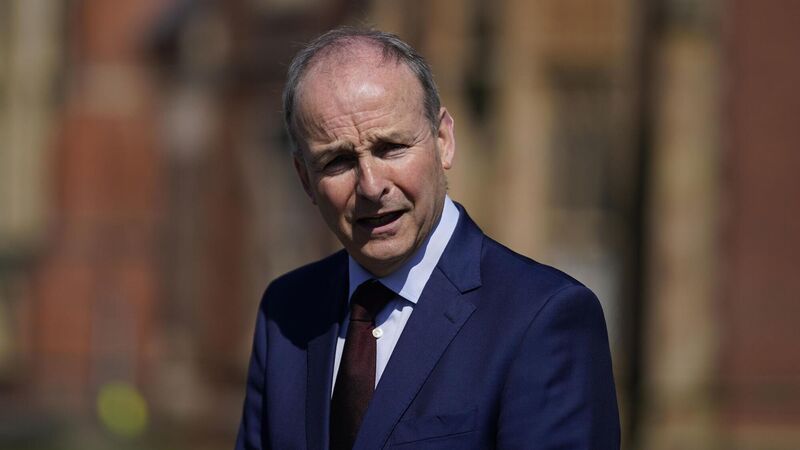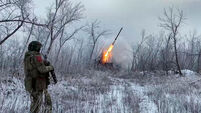Micheál Martin defends his comments on China

Tánaiste Micheál Martin told the Royal Irish Academy’s Annual International Affairs Conference that 'we do not intend to be silent when we see evidence of core principles being undermined'. Picture: Niall Carson/PA
Tánaiste Micheál Martin has defended comments he made about China in which he said the Government and the private sector need to be “realistic” about the country’s objectives for Ireland.
Mr Martin said Ireland and China's interests and values “differ” and this will “inevitably shape” how both countries engage.
He was speaking at the Royal Irish Academy’s Annual International Affairs Conference on Tuesday in which the theme was 'preserving the international rules-based order, addressing risks and meeting responsibilities'.
The Tánaiste also said Russia has shown no sign of ending its war in Ukraine and Russian president Vladimir Putin is "counting on us growing tired, of looking away". He said the figure of 22,000 casualties in Ukraine is likely only the tip of the iceberg.
He said the Government and the private sector must not be “naive or silent” when confronting China’s behaviours which go against the international rules-based order as set out in the UN Charter or if they see “evidence of core principles being undermined”.
“We want to work constructively together; addressing climate change, advancing sustainable development, ensuring the protection of human rights and fundamental freedoms for all, building a fair and open global trading and investment system," said Mr Martin.
“But we are not naive. And we do not intend to be silent when we see evidence of core principles being undermined.”
He said Ireland "values" its relationship with China and the economic relationship has expanded, reaching €34.5bn in two-way trade in 2021, but he said Ireland must be "clear-eyed" about China's objectives and what they mean for Ireland and the EU.
Mr Martin also made reference to a speech by European Commission president Ursula von der Leyen in which she spoke of “de-risking” relationships with China.
“At its heart, we see ‘de-risking’ as developing our economic and systemic resilience to, in turn, protect our values and interests," he said.
“It does not mean turning our backs on an economic, diplomatic, and cultural relationship with China. Far from it.”
When asked if he had concerns about reaction to the comments he has made about China, Mr Martin said he believed his speech was balanced and fair.
“I think, first of all, it’s important that we set out an overarching policy framework that’s realistic in terms of our relationship with China, that understands China’s objectives and ambitions and looks at the relationship both through the lens of risk and opportunities, of course, and I think it’s a fair, balanced speech in terms of the modern-day, global, geo-political situation,” said Mr Martin.
He said action is needed following a report by the former UN high commissioner for human rights, Michelle Bachelet, on her assessment of the human rights situation in Xinjiang.
He said her findings were “stark” and that he has raised the report directly with his Chinese counterparts, urging compliance with its recommendations.
“I sincerely regret that China effectively blocked discussion of the report at the UN Human Rights Council,” he said.
“Whether in relation to Xinjiang, Tibet, Hong Kong, or elsewhere, China has an obligation to act in a manner that ensures full respect for the rule of law. China, like every other UN member state, must comply with its human rights obligations.”













